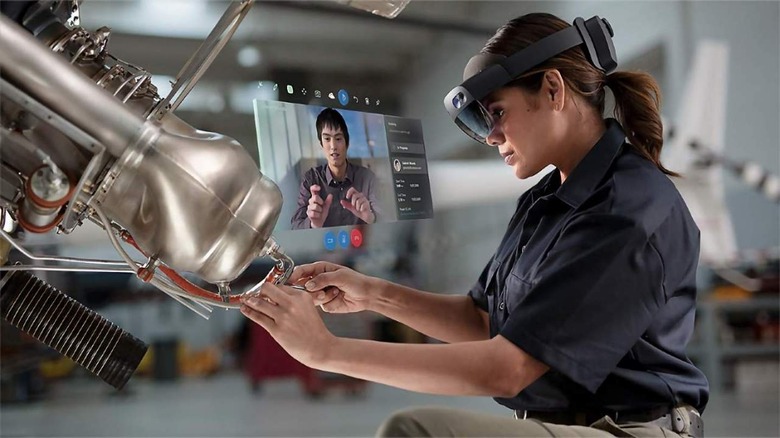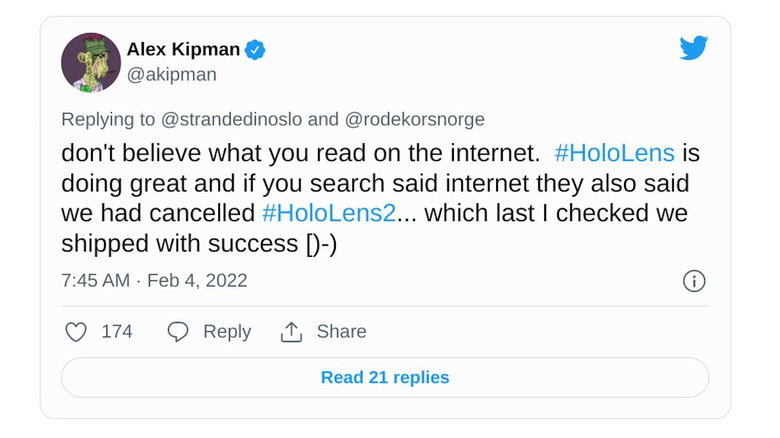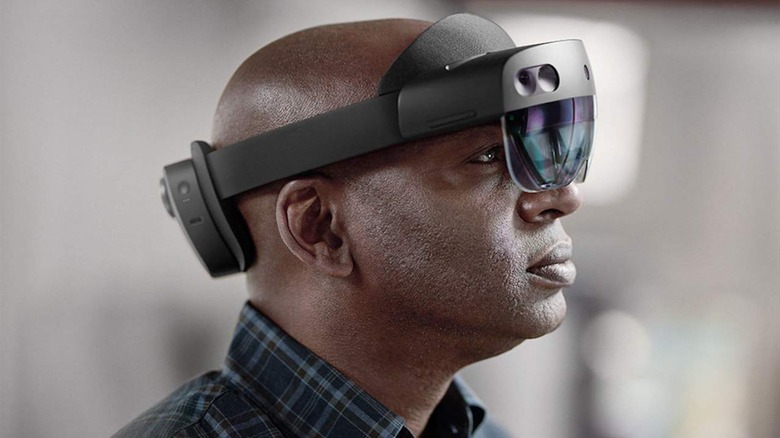Microsoft Engineer Says HoloLens 'Doing Great' Amid Cancellation Rumors
With all the buzz about the metaverse and related technologies, it's only natural for questions to be raised about some of the existing products related to the concept. Microsoft's HoloLens is a relatively new attempt at making augmented reality more useful in real-world scenarios, but we haven't heard much about it over the past year. That has changed, with Microsoft reassuring customers its HoloLens platform is far from dead — though it still leaves one particular question open for interpretation.
Trouble in AR land
Launched in 2016, HoloLens is an augmented reality (AR) headset paired with a software platform now known as Windows Holographic that pushes the idea of using AR at work. The product serves a very niche market at a time when consumer VR is still the big thing in the industry, and the HoloLens hardware is only made available to industry and military customers. Although there have been piecemeal updates for the software here and there, not much has been said about newer hardware.

That new hardware would be the anticipated HoloLens 3, an update to the headset that Microsoft said was in the pipeline last year. Sources that recently spoke to Insider, however, claimed the next-generation headset has been canceled and blamed it mostly on in-fighting within the HoloLens team. There has, the sources claim, been some disagreement over which path Microsoft should take moving forward, especially in light of the metaverse.

Unsurprisingly, Microsoft technical fellow for Mixed Reality and AR Alex Kipman was quick to refute those rumors. According to Kipman, HoloLens is "doing great" and, he points out, there were similar claims about the HoloLens 2 before its release. The statement, however, sidesteps the real focus of the rumors.
HoloLens 3 question remains
The Insider report focused specifically on the HoloLens 3, not the current-gen hardware, and claimed that particular product is no longer in the works. While the HoloLens platform might be doing great, as Kipman said, the defense doesn't dispel doubts about its future. If anything, the tweet suggests Microsoft is only focused on what's currently available, not offering any reassurance about the mixed reality platform going forward.
Abandoning the HoloLens 3 would be a missed opportunity for Microsoft, of course, as it is one of the early adopters of AR, especially in the workplace. That said, the company's track record with hardware isn't great, especially when it comes to niche products, plus its performance in the VR, AR, and 3D realms hasn't been stellar, either.
Focusing on improving the HoloLens and expanding it for commercial use could bolster its position. That may explain why there is an alleged faction pushing for an increased focus on the platform's software experience. Ultimately, Microsoft might need to say something more official than a technical fellow's tweet to assure customers and investors that HoloLens is indeed far from dead and not simply on life support.

